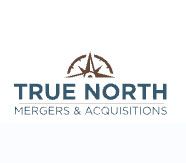The Pre-Sale Playbook: 5 Priorities for a Successful Business Exit

True North Mergers & Acquisitions
January 27, 2025

Selling your business is one of the most significant decisions ever. It's more than just a financial transaction—it's a deeply personal decision that impacts the trajectory of your life. After all, you've invested countless hours of hard work, sweat, and tears into building your company, making it an integral part of who you are. The decision to sell requires careful consideration and thorough preparation. As you contemplate this monumental step, it's crucial to approach the pre-sale process with a clear strategy.
In this blog, we'll explore five key priorities you should keep in mind as you prepare for a successful business exit. These considerations will help ensure you're well-equipped to navigate the complexities of selling your business while maximizing its value and securing your legacy.
Define Your Exit Goals
Before jumping headfirst into a decision like this, you must set clear goals. Establishing your goals initially can help you avoid making decisions that do not align with your long-term objectives or accepting terms you will regret later. Outside of your financial goals for your net after taxes gain, you should also consider and set goals for your legacy and transition after the closing table.
For example:
- Do you want to remain involved in the business after the transaction closes? If so, in what capacity? Consider whether you want a clean break with a defined transition period or an ongoing yet peripheral role as an advisor or board member.
- What level of continuity do you want for your employees and company culture? Consider your team's job security and how best to secure the workplace environment you worked hard to build.
- Is it important to preserve your brand identity? Some buyers will maintain your established reputation; others may absorb your company into their existing brand. How you wish to have your legacy carry on may play a key role in identifying the right buyer.
- When do you want to exit? While some exits are immediate, others occur in stages over several years. Your exit timeline may affect which buyers you consider.
- What are your post-exit plans? Whether you're planning for retirement, starting a new business, or traveling, having an idea of what is next will help you make better strategic decisions when going to market and set the stage for a successful transition.
Set a Reasonable Timeline
While mergers and acquisition timelines vary with the industry, market conditions, and the complexity of the deal, even the most seamless transactions take six to ten months to close.
Once you decide to sell, you need time to prepare yourself and your business. We suggest planning for the sale a year (or more) ahead of time. This will give you the time necessary to:
- Prepare your financial records
- Document critical processes
- Prepare your leadership team
- Optimize operations
- Find an experienced mergers and acquisitions team
Prepare Financial Statements
Buyers want to know that your business is financially sound and positioned for future growth. To demonstrate your financial health, gather at least three years of financial statements, including income statements, balance sheets, tax returns, and cash flow statements.
Your statements should also include:
- Monthly and yearly revenue trends
- Profit margins by product or service
- Customer acquisition costs
- Operating expenses
- Accounts Receivable and Payable aging reports
- Inventory
- Fixed assets
- Debt records
- Net working capital requirements
You must have your business's financial statements accurate, completed, and fully reconciled before entering the market. Leaving this until the later phases of the M&A process, such as the due diligence phase, could delay or even derail negotiations.
Document Critical Processes
Where does your business's operational knowledge reside? Potential buyers inherit significant risk if it resides solely in your head. Buyers are drawn to companies with well-documented operations, as this reduces uncertainty and demonstrates a smooth knowledge transition. By recording your business's functions, you are not just organizing information—you are increasing your company's value and appeal in the eyes of prospective buyers.
Your documents should capture everything from how your company generates revenue to critical workflows, employee training procedures, vendor management, and risk management protocols.
Partner With an Experienced M&A Investment Banker
Running a business and selling it requires different skills. While independent sales might seem cost-effective, they often fall short of professional M&A advising. Experienced advisors, like True North M&A, have an extensive network of qualified, industry-specific buyers, insight on the strategic positioning of your business, know how to run a proprietary QuietAuction™ process, ensuring confidentiality and proactive identification of potential negotiation obstacles.
We transform your business sale from a transaction into a strategic opportunity, maximizing your return while minimizing risks. Our expertise ensures you get the best possible outcome without the stress of navigating a complex process alone.
In simple terms, we offer you the expertise and ongoing support you need to avoid common pitfalls and maintain control of the deal.
Maximize your life’s work! Let Us Help You Make the Exit You Deserve
Ready to make your exit? With decades of experience and billions of dollars in successful transactions, the True North Mergers & Acquisitions team knows what it takes to facilitate a seamless exit. Whether you are in the early planning stages or ready to undergo the business valuation process, our team will meet you where you are—and take you where you want to go.
If you have questions or are ready to start, connect with True North Mergers & Advisors President Michael Hubsmith today!
Subscribe to our Newsletter
Sign up for the latest industry insights from True North Mergers & Acquisitions.




